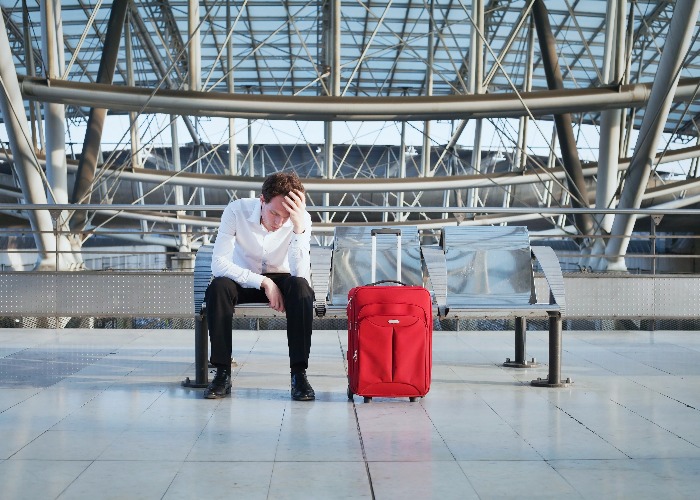easyJet, Ryanair and other airlines face court over COVID-19 refund policies

The Spanish Government is threatening legal action as The Civil Aviation Authority (CAA) admits it doesn’t have the power to speedily punish the worst offenders.
More than a dozen airlines are being taken to court by the Spanish Government over the shoddy way they have handled refunds for flights impacted by the COVID-19 pandemic.
A total of 17 airlines are being pursued by the authorities over what have been described as ‘deceptive’ business practices.
Essentially, the issue comes down to accusations that these airlines have not been entirely open about passengers’ rights to a refund, which are set out in EU law.
The airlines threatened with a court date include the likes of easyJet, Ryanair, Lufthansa and Jet2.
A spokesperson for the Government was quoted on Spanish TV as saying there was ‘ample evidence’ that refund regulations were not being followed properly.
Coronavirus: the worst airlines for cash refunds
What are your rights?
Spanish travellers enjoy the same rights to a refund as British ones. If your flight is cancelled, then the airline is required to provide you with a cash refund within seven days of the cancellation.
And that’s the problem. In an awful lot of cases, these airlines aren’t doing that.
Some airlines were not providing cash refunds at all, instead only offering passengers the chance to rebook or accept a voucher for another trip at a later date.
Others weren’t being sufficiently transparent with travellers about what their actual rights to a refund were, or simply made it unnecessarily difficult for people to get in contact to request that refund.
And then there’s the simple, old-fashioned ‘drag your heels’ approach. So, while the airline accepts you want a cash refund, they are in no rush to actually provide you with it.

Is the situation improving?
The good news is that according to our own authorities, the refund situation seems to be improving.
The CAA has conducted a review of the refund ‘policies and performance’ of UK airlines, as well as three large international operators who fly into and out of the UK.
It admitted that when it began its review, some airlines were not paying refunds at all while others were facing ‘backlogs of numerous months’ when handing cash back to passengers.
The CAA said that it had found some airlines were ‘not performing adequately’ on the refund issue, which is honestly a bit of an understatement. For example, in the early stages of the pandemic, easyJet and Emirates were taking up to 90 days to process refunds, while Virgin was taking up to 60.
In the case of Virgin though things got ‘significantly worse’ leading to delays of up to 120 days just to process a refund claim – a farcical timescale.
The CAA said that it has commitments from the struggling airlines to improve their performance on the processing of refunds, without the need to crack the enforcement whip.
Virgin, for example, has pledged to reduce the maximum wait times to 80 days within August, 60 days in September and 30 days in October. Yet there are already accusations that the airlines are breaking their promises.
Consumer champion Which revealed it has seen evidence that Ryanair, TUI and Virgin are falling short of what they told the CAA.
Ryanair, for example, pledged to clear all refund requests received up to the end of May by 31 July, yet Which has heard from passengers still waiting for refunds from March.
Similarly, TUI still states on its website that customers must wait for a voucher before they can claim a refund. But Which said it has spoken to a customer yet to receive the voucher she needs to claim a refund, or any other communication from TUI, since her flight was cancelled in April.
Coronavirus: what’s covered by travel insurance policies, exemptions & more
CAA ‘not suited to swift action’
It’s notable that the CAA said it was better that airlines sorted themselves out, without having to turn to enforcement, as its powers ‘are not well suited to swift action and it can take a considerable period of time for a case to come before the courts.’
In other words, it doesn’t have proper powers to tackle airlines breaking the law in a speedy way, which is absolutely ridiculous.
There is no point in having a regulator which doesn’t have the tools it needs to regulate a sector adequately, and that undoubtedly means providing bodies like the CAA with the powers to hit airlines in the pocket when they show such open disdain for the rules.
Comments
Be the first to comment
Do you want to comment on this article? You need to be signed in for this feature